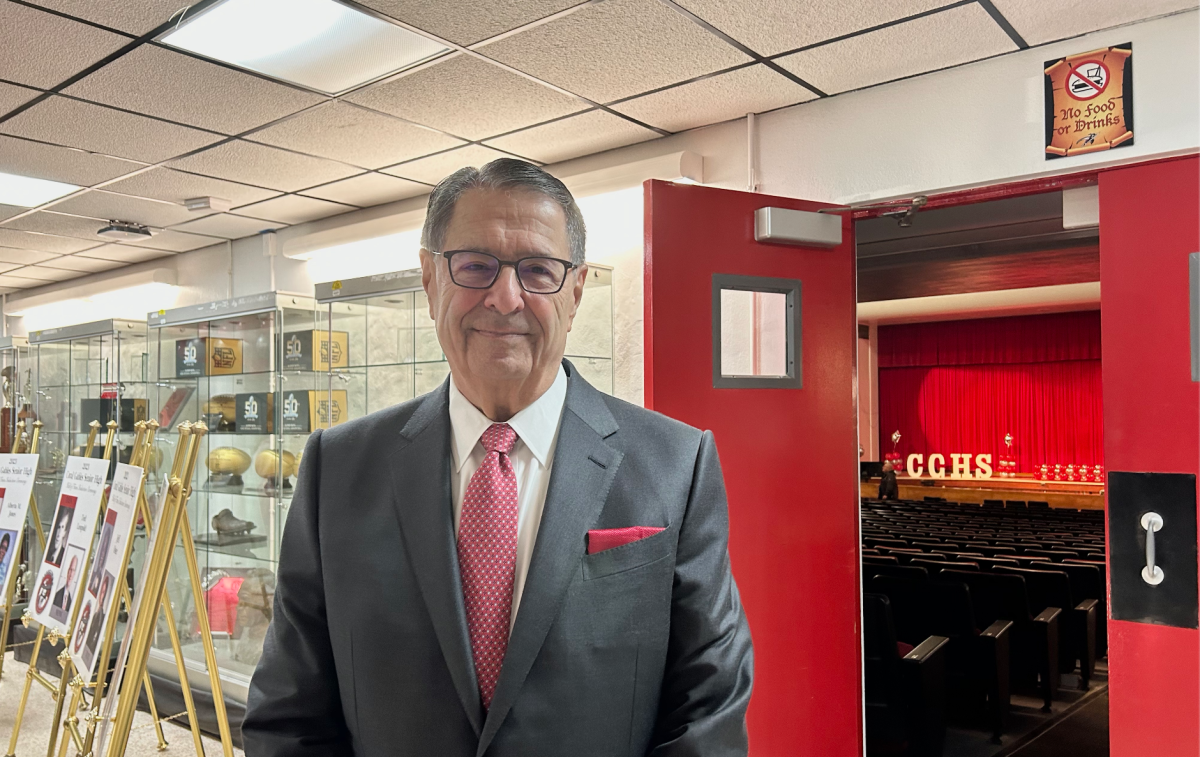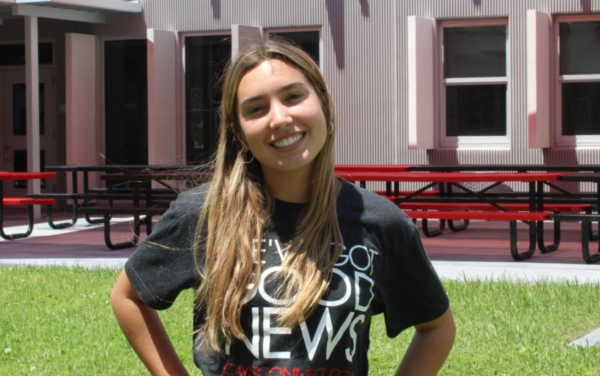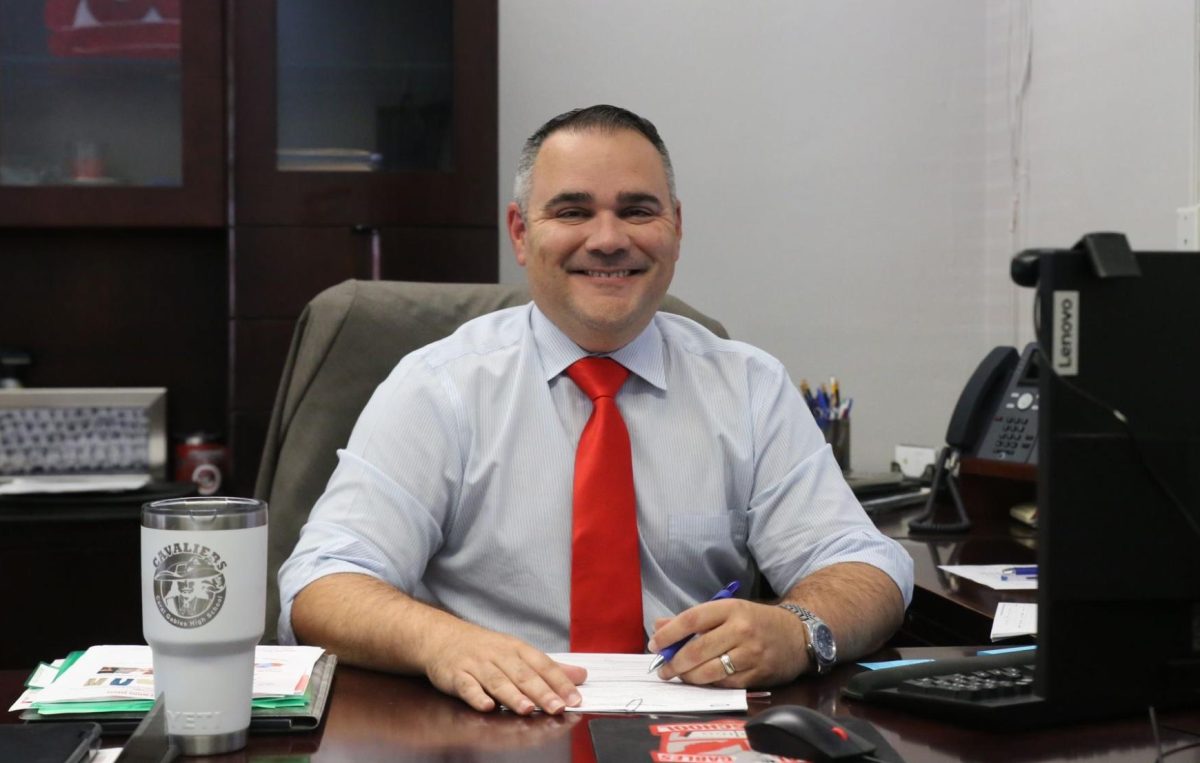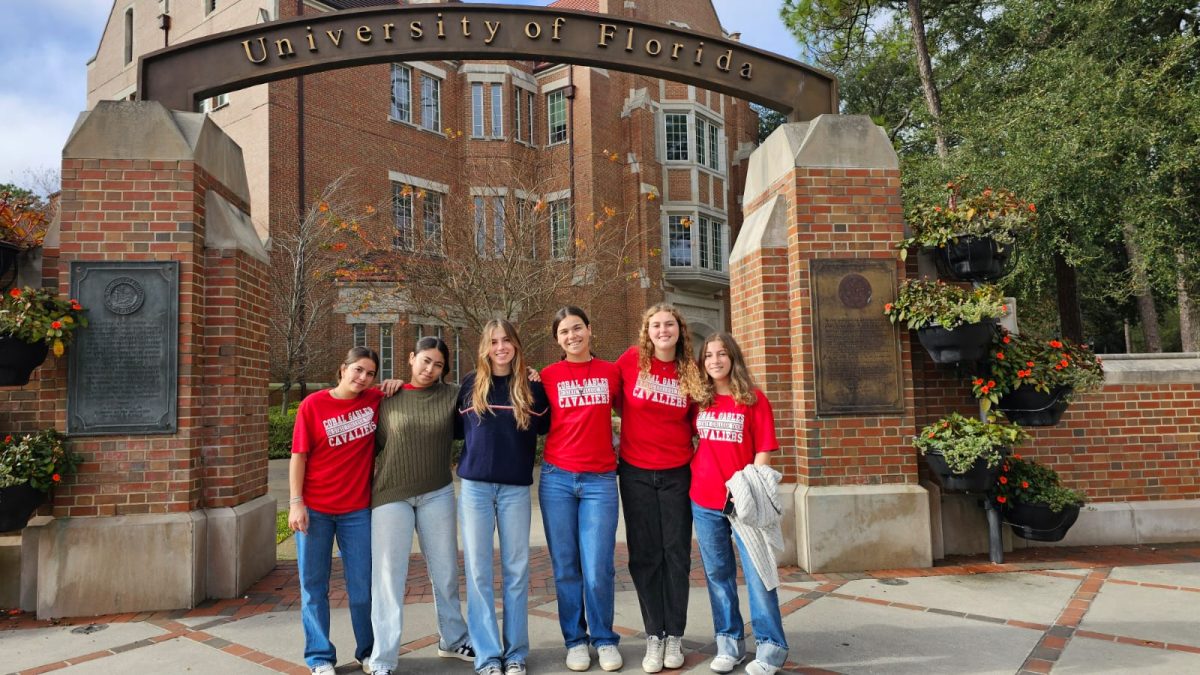Today, Michael Zinner is the medical brain behind the Miami Cancer Institute at Baptist Health South Florida. Yet decades ago, he had his early beginnings at Coral Gables Senior High. Starting his freshman year in 1959 as a timid but curious student, Gables lit up a flame that gave rise to the great intellect he is today. Inducted into Friends of Gables High’s Hall of Fame the bright, early morning of Nov.11, he proudly took his award at the very place his journey began.
At Gables, Zinner was involved in a myriad of science extracurriculars such as the science club and later, competitions and fairs as an upperclassmen. At just 16 years old, Zinner entered a science fair with a handmade computer manufactured out of rusty, old pinball machines. Then during his graduating year, he wrangled in the 22nd annual science talent search for the Westinghouse Science Scholarships and Awards with a project titled “Biophsyics in Radiation Microbiology, Computer Analysis and ‘Gnotobionics'”. Walking across the stage in a cap and gown on June of 1963, Zinner’s future was seemingly as bright as his mind.
“One of the things that engineering teaches you is very linear thinking and problem-solving, and it turns out that that was probably the most important thing I learned in life… how to go from point A to point B without scatter braining it and then how to problem solve, and that helped me in my entire career,” Zinner said.
With aspirations to achieve higher education, Zinner packed a suitcase stuffed with passion to Baltimore, Md. While attending Johns Hopkins Whiting School of Engineering, he was newly motivated by a science that could directly help society and its people, establishing his journey towards biomedical engineering. Earning a bachelor’s degree, he set sights on a doctorates degree.
“[The 6 Million Dollar Man] was a television show where they basically put someone back together again after they had had an accident. They had artificial parts to them, and I thought that was really cool, if I could figure out how to do that in real life… It was someway of improving the quality of medical care by applying engineering principles,” Zinner said.
At the time, the University of Florida was a relatively small school with only 12 graduating classes before his. There, drawn by the school’s high praise, Zinner graduated with a doctorates in surgery, marking a shift in his career path towards medicine.
“I changed my goals over a dozen times. At first, I wanted to be a pediatrician. Then, I wanted to be a cardiologist. Then, I wanted to be a plastic surgeon. Then, I wanted to be heart surgeon, and I ended up finally deciding to become a surgeon. I went on to surgical training,” Zinner said.
After medical school, he began his internship and residency at Johns Hopkins, exploring the ins and outs of what would be like to treat a patient in the surgery room. However, his plans were haltered as he was tasked with fulfilling his military commitment by joining the army. Stationed at Walter Reed Medical Center in Washington for three years as a surgeon in the army, after taking ill patients under the knife, the veteran returned from his serving back to Johns Hopkins.
Training for over five years at Johns Hopkins, Zinner’s instructions entailed burdens and difficulty, working long and hard shifts, but all under the name of helping others. Finishing in 1980, Zinner completed his educational journey and took to the work force with great knowledge and greater determination.
“What I discovered was resilience. In those days, you would sometimes be on call in the hospital for six straight days, not going home at all, working up to 18 to 20 hours a day, taking care of critically ill patients, and I learned resilience. I learned that I could do just about anything… I learned how to operate people but also how to take care of people. It was a game changer in my life,” Zinner said.
His early career began at the heart of Brooklyn, NY, working at Kings County Hospital as a surgeon, later moving back to Johns Hopkins to become Vice Chairman of the Department of Surgery. There, his work began to encapsulate a new aspect: training and mentoring younger generations in the medical field. With much experience, his third job out of school was at University of California at Los Angeles Medical Center’s Executive Chairman of Department of surgery for the following three years, where he took on similar but larger roles. In charge of five hospitals at the time, Zinner’s early jobs were strenuous, but provided a foundation for what was to come years later.
“You go from being the primary person in charge to now being responsible [for] others and developing young people and building programs. It’s expanding others and their opportunity, and that’s the part that I enjoyed the most, being able to mentor young people and grow their careers. Now, some of those people have gone on to be very famous themselves, and I’m very proud of them,” Zinner said.
This new-found love for teaching eventually led him to becoming chief of surgery in the year 2000 at what is now the second largest teaching hospital of Harvard Medical School, Brigham and Women’s Hospital. Staying with 55 surgeons in its department, Zinner worked to expand the crew into 155 by the time he left. Six years later since his first position affiliated with Harvard, he was given the opportunity of simultaneously running the cancer program as clinical director of the Dana Farbar Cancer Institution. After 22 years of building a research and clinical program, Zinner walked away from Boston, Mass. in search for greater.
“My other inspiration is giving back to young people and growing young people. So for example, you’ve been on an airplane, and you sit next to someone, and they say, ‘Well what do you do?’ Well when I get asked that question, I tell them ‘the young people business,’ and that my role is to develop young people to flourish their career,” Zinner said.
Starting in 2016, Zinner opened the doors of the Miami Cancer Institute at Baptist Health South Florida. Today, it impressively stands as the fourth best cancer hospital in the state of Florida. Coming out the ground seven years ago with 24 physicians, the program is now a place of employment for over 150 who work to save the lives of over 1,200 patients. As chief executive officer and executive medical director, Zinner works administering, hiring and recruiting for the large institute. His roles are hefty, and his work seems never-ending, yet his passion and commitment has made the winding voyage worth while.
“I’ve learned that cancer is a journey, and it’s not just how you approach the solutions to the medical problems but how you involve the family and the psychological parts of it. It’s a journey for the entire family, and we’ve learned to be holistic in our approach to cancer care,” Zinner said.
For all of Zinner’s commitment to medicine and saving lives, he has been inducted into Friends of Gables High’s Hall of Fame. Working tirelessly to build his community in South Florida, he was honored on the stage of Gables, the same site that instilled resilience, drive and passion into him.






